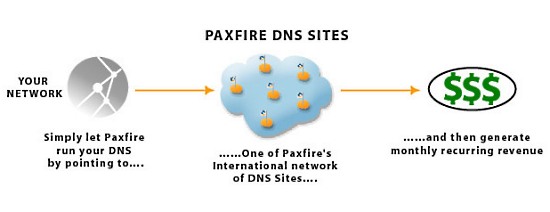Several major US Internet service providers made money from customer searches

The other day, the data of one study of network security experts from the University of California at Berkeley is presented. The study is very interesting, and concerns the additional earnings of providers, for which they track the search queries of their customers. By the way, this is not one or two providers, the researchers found that such providers as Frontier, Hughes, Insight Broadband, XO Communication, Cincinnati Bell, Megapath, Cavalier, DirecPC, Paetec, Cogent, RCN and Wide Open West participate in the scheme . There was (in fact, there is) PaxFire, which acts as an intermediary between providers and customers.
How did the circuit work? Everything is very simple and very effective (for providers). So, the intermediary, the company PaxFire, tracked the search queries of the customers of the providers. Based on this information, providers in some cases redirected the user from the search page directly to the site of the company in question. Well, for example, the user entered the query “best buy”. It is clear that in 99% of such a person is looking for a service with the same name. Providers could redirect the user immediately after entering this search query from the search results page to the Best Buy service. As soon as the user bought something there, PaxFire got referral income. Subsequently, this money was divided between the provider and PaxFire.
Actually, there are several companies like PaxFire (as revealed during the investigation). But she collaborated with many providers. A lawsuit has already been filed against PaxFire. The basis for the lawsuit is the law on the protection of personal information, which, without a doubt, are search queries.
The researchers found that the scheme used about 170 search queries, the input of which led to a redirect of the user from the search results page to the page of a particular service offering referral payments.
A team from the University of California released a special program, Netalyzr, which allows the user to understand whether their provider is using a similar scheme. In addition, there is also an extension to Firefox, encrypting user searches, forwarding them via HTTPS.
Via Yahoo
